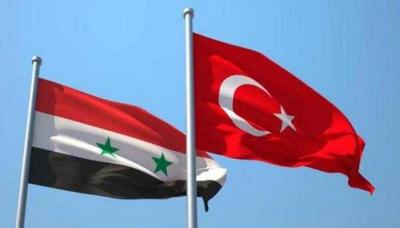Ankara and Damascus have revealed new details regarding the discussions held during the trilateral meeting of the defense ministers of Turkey, Russia, and Syria, along with the heads of intelligence from the three countries in Moscow. The main issues discussed included the return of Syrian refugees, counter-terrorism efforts, and the Turkish military presence in northern Syria.
Turkish Defense Minister Hulusi Akar stated that during the meeting held on Wednesday, the Turkish side emphasized its commitment to the territorial integrity and sovereignty of Syria and clarified to the Syrian side the reasons for the Turkish military presence in its territories, stressing that Turkey's sole purpose is to combat terrorism. According to Turkish newspaper "Sabah," Akar noted that, during the meeting, terrorist groups control one-third of Syria's territory and that the Turkish military is present in Syria to combat the Kurdistan Workers' Party (PKK), the People's Protection Units (YPG), ISIS, and other terrorists, as well as to prevent mass displacement of Syrians toward Turkey.
Akar added that they stressed the importance of ensuring the safe and voluntary return of Syrian refugees to their homes and that Turkey would continue its communications with the "Syrian regime." Turkish sources mentioned, according to "Asharq Al-Awsat," that the trilateral meeting among the defense ministers and intelligence chiefs of Turkey, Russia, and Syria in Moscow addressed four main topics: "the safe and dignified return of refugees, the restitution of property to its owners upon their return, ensuring fair trials, and completing constitutional amendments to hold free and fair elections."
Sources indicated that the issue of the safe return of Syrian refugees in Turkey and the recovery of their properties was a priority during the meeting, noting that the meeting was held at the defense minister level rather than the foreign ministers due to the presence of Turkish troops in northern Syria, highlighting Turkey's determination to clear areas bordering its territory of terrorist organizations, particularly the YPG, the largest component of the Syrian Democratic Forces (SDF), which Ankara considers an extension of the PKK in Syria.
Turkish Foreign Minister Mevlüt Çavuşoğlu stated last Thursday that ensuring a safe return for Syrian refugees to their homeland is essential, mentioning that the Syrian regime desires their return. In contrast, Syrian state-affiliated media in Damascus reported that Turkey agreed, following the trilateral meeting, to withdraw its forces from Syria. Media sources cited by the Syrian regime described Turkey's agreement to withdraw from the territories it occupied in northern Syria, confirming that Russia, Turkey, and Syria also discussed implementing the agreement reached in Moscow on March 5, 2020, concerning the opening of the Aleppo-Latakia international highway (M4).
Sources also mentioned that the meeting led to an agreement among the three parties—Turkey, Russia, and Syria—that the PKK, which is banned in Turkey, is "an agent of Israel and the United States," representing the greatest threat to both Syria and Turkey. Turkish Foreign Minister Çavuşoğlu revealed the day after the Moscow meeting that Turkey is ready to hand over areas under its control in Syria to the regime "once political stability is achieved." Çavuşoğlu emphasized Turkey's repeated commitment to transferring control in areas where it currently operates back to Syria when political stability is achieved, indicating the potential for future cooperation if a common ground is established between the two countries regarding counter-terrorism.
It was also noted that the Russian side had proposed during a consultative meeting in Istanbul in December a framework involving the withdrawal of Syrian Democratic Forces (SDF) armed units from Manbij and Ain al-Arab (Kobani) in northern Syria, with regime forces taking their place while maintaining "Asayish" security forces and integrating them into the regime's security apparatus to fulfill Turkey's desire to establish a security belt 30 kilometers deep within Syrian territory.
Turkish President Recep Tayyip Erdoğan paved the way for the Moscow meeting by stating he proposed to Russian President Vladimir Putin to hold a meeting between the leaders of Turkey, Russia, and Syria, preceded by a meeting of the heads of intelligence and defense and foreign ministers. Çavuşoğlu noted that the next step following the defense ministers' meeting would be holding a meeting for the foreign ministers, and he will meet with Russian Foreign Minister Sergey Lavrov to discuss the matter.




